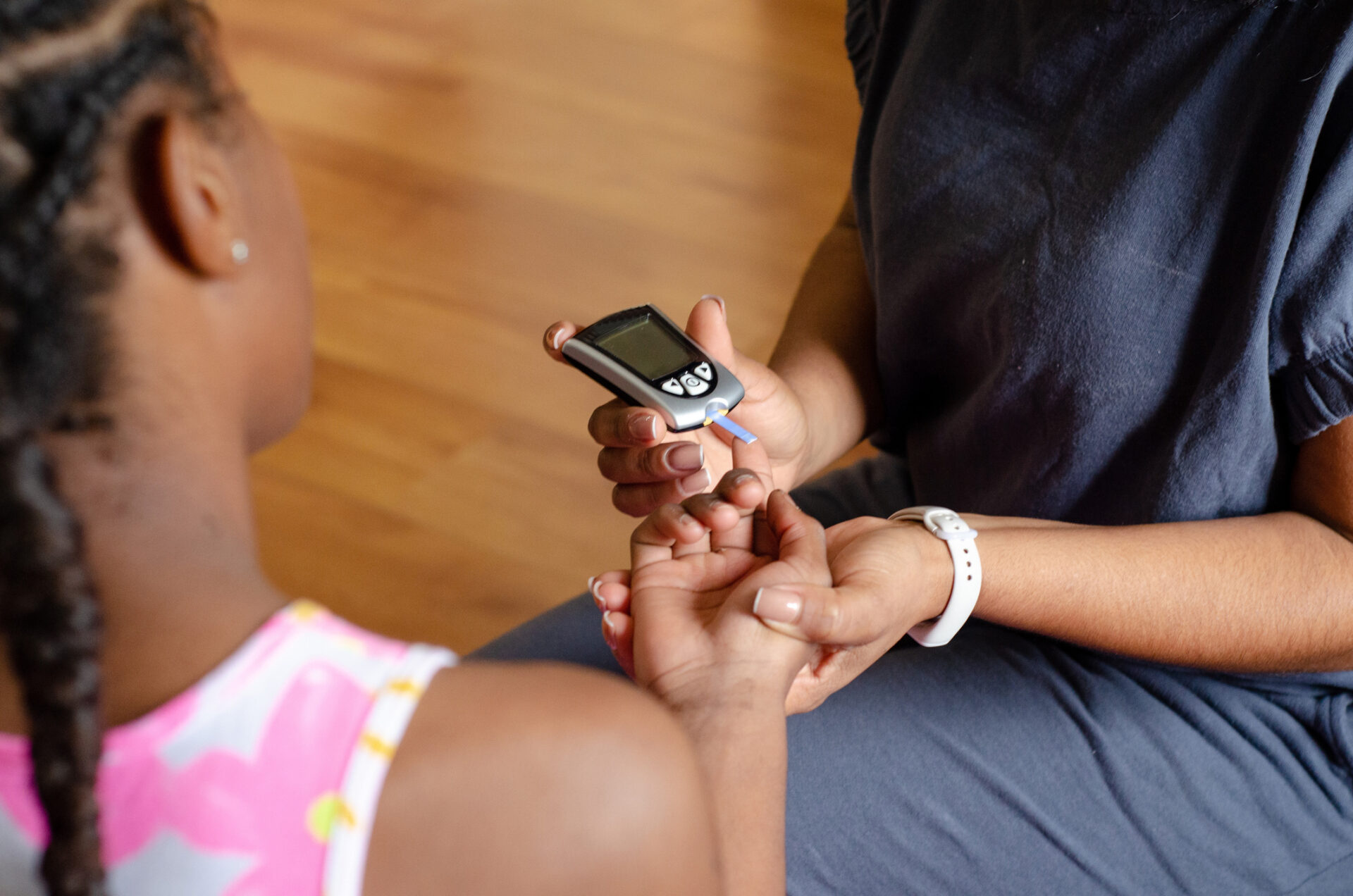Continuous glucose monitoring (CGM) leads to lower HbA1c values in children with type 1 diabetes. However, the more difficult it is to access healthcare, the less the technology is used. Factors such as low socio-economic status and ethnicity play a role here – as does the place of residence. Researchers from the USA have compiled data to document the particular challenges faced by this patient group.
Numerous studies have already shown that the use of a continuous glucose monitor improves blood glucose levels in children and adolescents with type 1 diabetes. CGMs reduce the barriers to glucose monitoring by providing people with diabetes and their caregivers with non-invasive, near real-time data to make decisions about daily insulin treatment. In addition, cloud-based online portals display long-term blood glucose trends and provide providers, caregivers and diabetics with important longitudinal data to adjust insulin treatments and optimize blood glucose levels. Despite these benefits in short- and long-term outcomes, studies have identified significant socioeconomic inequalities in the use of CGM prescriptions.
Although patients in rural areas often face the same barriers to care, such as limited access to broadband internet or long distances to urban or suburban clinics, the differences in access to CGM in such regions have not been adequately researched. Dr. Daniel Tilden from the Department of Endocrinology, Diabetes and Clinical Genetics at the University of Kansas Medical Center, Kansas City, and his co-authors have taken on this task [1].
Rate up to 49% lower for rural children
In their retrospective cohort study, the researchers compared the probability of completing a visit with (+) and without (-) CGM interpretation between rural and urban commuting areas according to the Rural-Urban Commuting Area (RUCA) code. According to this, places of residence were divided into urban, large rural, small rural and isolated rural. During the 52-month study period, patients were followed up at several clinic visits.
A total of 13,645 consultations from 2008 patients with type 1 diabetes under the age of 18 were analyzed. It was found that children living in small rural towns were 31% less likely (6.3% CGM+ visits, 8.6% CGM- visits; adjusted odds ratio [aOR] 0.69; 95% CI 0.51-0.94) were more likely to complete a CGM-billed clinic visit than people living in urban areas (70.0% CGM+ visits, 67.2% CGM- visits). For children and adolescents living inisolated rural towns, the probability was even 49% lower (2.0% CGM+ visits, 3.4% CGM- visits; aOR 0.51; 95% CI 0.28-0.92). Significant differences were also found in the number of CGM-billed visits depending on neighborhood deprivation, ethnicity and insurance carrier.
Socio-economic status, ethnicity and place of residence as risk factors
These findings strongly suggest that, in addition to factors such as socioeconomic status and ethnicity, geographic location is also a risk factor for barriers to diabetes technology utilization and optimal diabetes care. After adjusting for gender, ethnicity, HbA1c level, year of visit, and insurance type, a statistically significant and clinically meaningful lower rate of CGM billed clinic visits was found among those living in small and remote rural towns compared to those living in urban areas. In addition, an evaluation by the National Democratic Institute (NDI) found that patients living in areas of greater social deprivation were also significantly less likely to complete visits with CGM data. By using CGM billing codes as an outcome, these results more accurately reflect actual device utilization and may represent known barriers to diabetes technology use in this population.
Given the accumulating evidence of significant improvements in glycemic outcomes in type 1 diabetics using CGM, these data underscore the importance of understanding geographic barriers to diabetes technology adoption to improve outcomes in the future, the authors write. Pediatric diabetologists should be aware of the potential barriers to CGM use in rural patients and seek to work with patients to develop strategies to overcome these barriers to optimal diabetes care.
Future work should further explore these barriers to improve inequalities in CGM use among children with type 1 diabetes in rural areas.
Literature:
- Tilden DR, et al: Disparities in Continuous Glucose Monitor Use Between Children With Type 1 Diabetes Living in Urban and Rural Areas. Diabetes Care 2024; 47(3): 346-352; doi: 10.2337/dc23-1564.
InFo DIABETOLOGY & ENDOCRINOLOGY 2024; 2(1): 20












